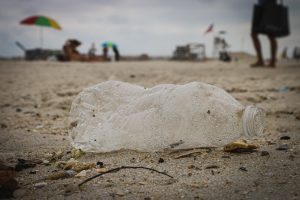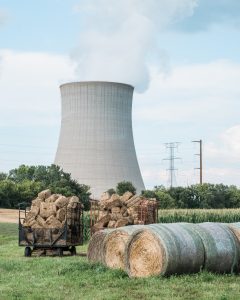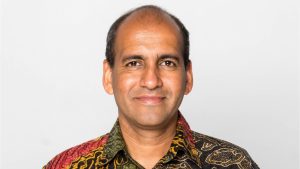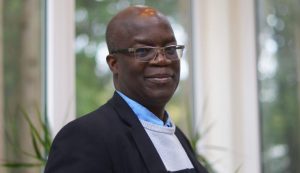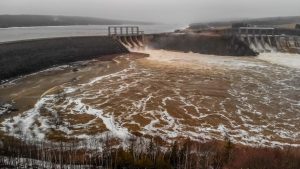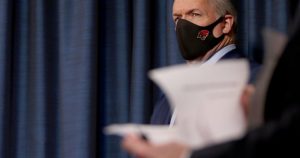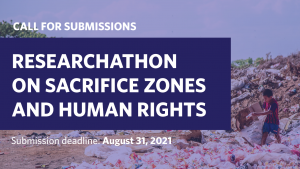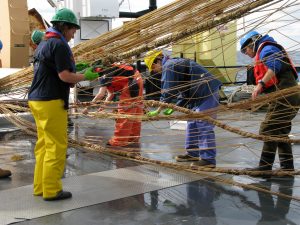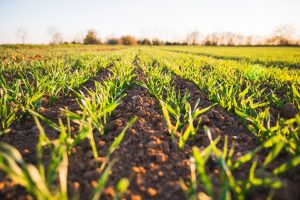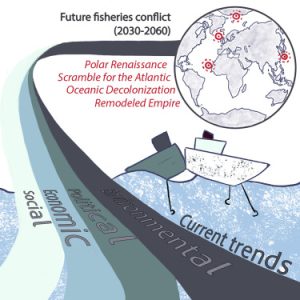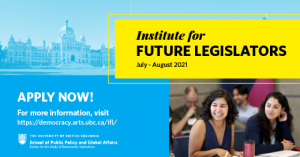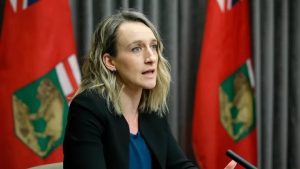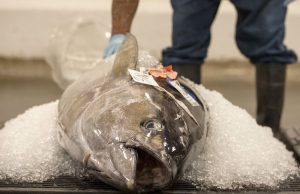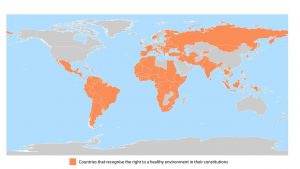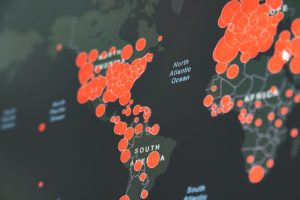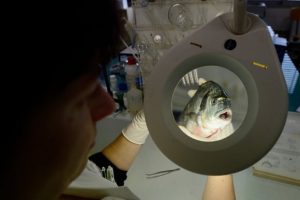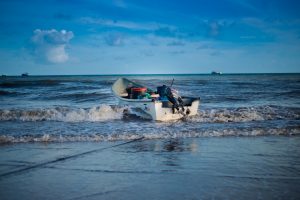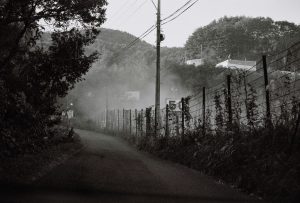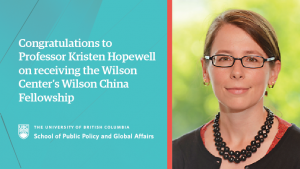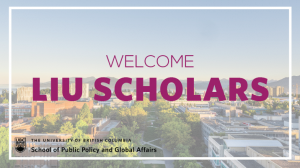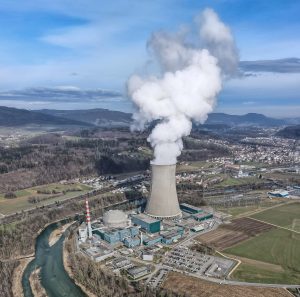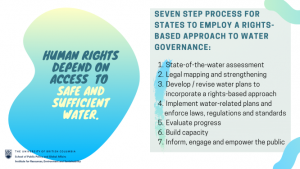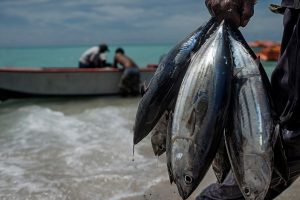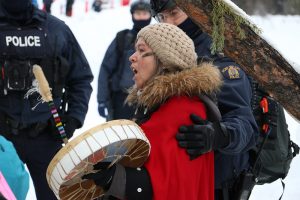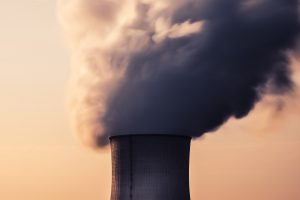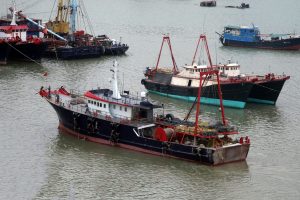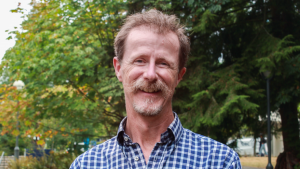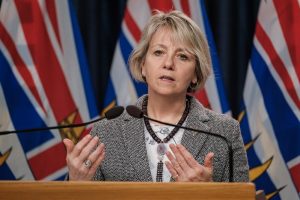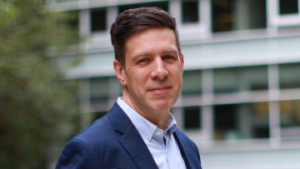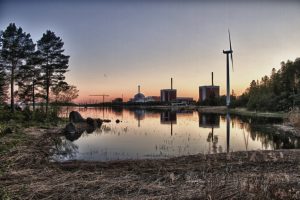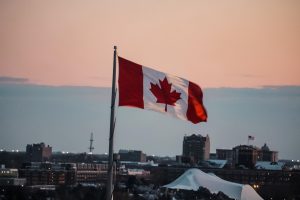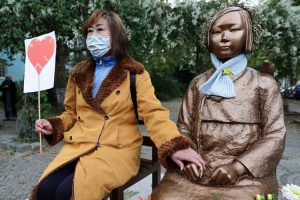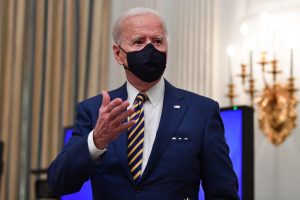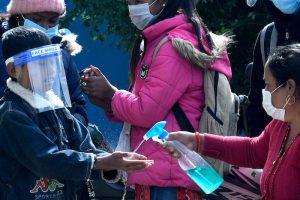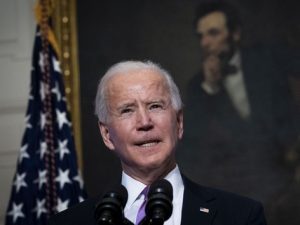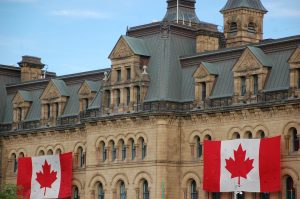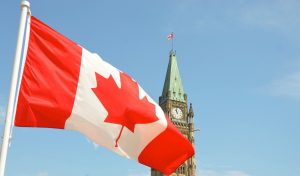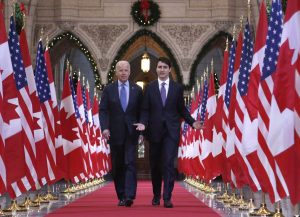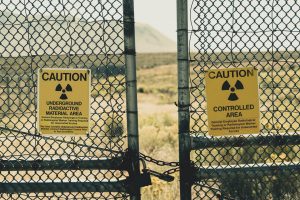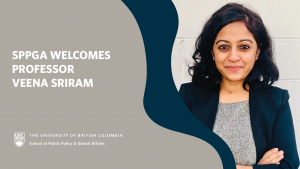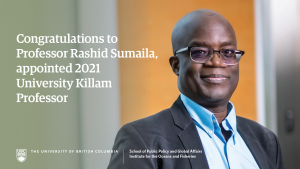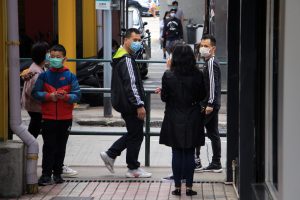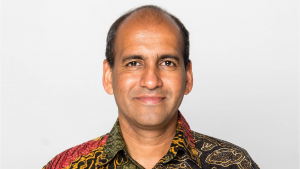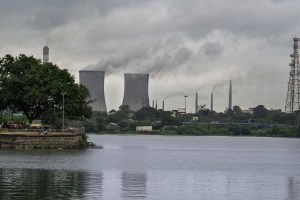Participatory Simulation: Reflections on the 2021 NASPAA – Batten Simulation Competition
MPPGA student Anoushka Chandarana recently competed in the 2021 NASPAA – Batten Simulation Competition. Learn more about her experiences in her reflection.
Government Response to COVID-19 Surge. Single-Use Plastic Pollution
On the BC Today Podcast, Professor Rashid Sumaila (SPPGA & UBC Institute for the Oceans and Fisheries) discusses the benefits and minimal costs of banning single use plastics, and how it should be implemented at the municipal and national levels.
Mankala Chronicles: Nuclear Energy Financing and Cooperative Corporate Form in Finland
Drawing on 32 months of interview-based ethnographic fieldwork, Postdoctoral Fellow Vincent Ialenti examines Finland’s “mankala” nuclear energy companies through the lens of anthropological theories of corporate form.
More Nuclear Reactors (SMRs): A Bad Investment for New Brunswick
“One cannot have both: nuclear power and sustainable renewable energy.” Professor Ramana and co-authors makes a case against SMRs for New Brunswick.
China’s Gone Fishing
China is the world’s largest exporter of seafood – and its largest consumer. After decades of overfishing, the nation is now looking for seafood in open and contested waters. Professor Rashid Sumaila (SPPGA & UBC Oceans) has more.
B.C. Premier Backtracks on Blaming Young People for Rise in COVID-19 Cases
Professor Heidi Tworek (SPPGA; UBC Department of History) cautions that placing the blame for the rise in COVID cases on young people could discourage them from getting tested and affect the ability to fight the pandemic in the long-term.
David Boyd, UN Special Rapporteur on Human Rights and the Environment, co-launches Researchathon on Sacrifice Zones and Human Rights
Join this year’s researchathon, hosted by Professor David Boyd (SPPGA; IRES) and Marcos A Orellana, which investigates “sacrifice zones” – places of severe pollution or environmental degradation where profits have been prioritized over people and public interests.
Why Small Modular Nuclear Reactors Won’t Help Counter the Climate Crisis
SPPGA Professor Ramana and others analyze the economies of scale, mass manufacturing, and the track record of small modular nuclear reactors to determine whether SMRs will help counter the climate crisis.
Professor Sheryl Lightfoot Appointed United Nations Representative on Rights of Indigenous Peoples
Professor Sheryl Lightfoot (SPPGA; Poli Sci; FNIS) was appointed the North American member on the UN Expert Mechanism on the Rights of Indigenous Peoples, which provides expertise to the Human Rights Council and advises states in achieving the aims of the UN Declaration on the Rights of Indigenous Peoples.
Strategic Narratives in Global Trade Politics: American Hegemony, Free Trade, and the Hidden Hand of the State
Professor Kristen Hopewell’s research on global trade politics suggests that the dichotomy between American “free-market capitalism” and “state capitalism” is not so clear cut – and tied to a strategic narrative deployed for legitimizing US economic interest.
Dr. Dierkes Elected as President of the Western Canadian Deans of Graduate Studies
SPPGA Professor Julian Dierkes has been elected as the president of the Western Canadian Deans of Graduate Studies, an organization focused on promoting the effective pursuit of graduate studies at Western Canadian Universities.
Seafood Trawl Fishing May Release as Much Carbon as Air Travel
In response to a study that suggests that seafloor trawl fishing releases as much carbon as air travel, Professor Rashid Sumaila (SPPGA & Institute for the Oceans and Fisheries) adds that we are putting too much pressure on our natural systems.
Connecting Peaces: TBCAS and the Integration of International, Social, and Ecological Peace
Transboundary Conservation Areas (TBCAs) have been heralded for their potential to foster peaceful relations, biodiversity conservation, and sustainable development, yet critics point out their failures. Professor Philippe Le Billon (SPPGA; Geography) suggests that TBCAs’ failings result in part from a lack of connection between three intertwined types of peace.
Exploring the Future of Fishery Conflict Through Narrative Scenarios
Disruptive changes in our global ocean and fisheries have sparked warnings of an increase in fishery conflicts. Professor Philippe Le Billon (SPPGA; Geography) co-authors this article, considers how multiple causal factors can drive conflict by using a scenario approach.
Joint Statement against Anti-Asian Racism and Violence
The UBC School of Public Policy and Global Affairs and its Institute of Asian Research strongly condemn the recent tragic violence against the Asian community in Georgia and the rise in anti-Asian racism in the United States and in Canada.
Two Canadians Detained by China Appear in Court (BC) (Cantonese)
As Michael Spavor awaits his verdict, SPPGA Prof Paul Evans comments on the possibility of being put into the broader Chinese prison system, which would simplify visitations.
Now Accepting Applications for the 2021 Virtual Institute for Future Legislators
Have you ever thought about running for public office? Do you wonder what it would be like to serve as a legislator? If you want to know more about what being a legislator means and how to be most effective in that role, apply to UBC’s Institute for Future Legislators (IFL).
Manitoba Campaign Aims to Combat COVID-19 Vaccine Hesitancy
With Manitoba’s vaccine persuasion campaign underway, Professor Heidi Tworek (SPPGA & UBC Department of History) that the way myths and facts are presented could lead to further misinformation and hesitation around COVID-19 vaccinations.
Cleaning Mineral Supply Chains? Political Economies of Exploitation and Hidden Costs of Technical Fixes
Professor Philippe Le Billon (SPPGA; Geography) examines hidden costs of three prominent mineral supply chain ‘solutions’ that respectively aim to create ‘conflict-free’ minerals, curtail corruption, and reduce mercury pollution.
Bait and Switch: Fish Fraud Rampant Worldwide, New Study Shows
After analysis of mislabeled seafood in various countries, Professor Rashid Sumaila (SPPGA & Institute for the Oceans and Fisheries) says that the worst offenders are those who purposely sell low-value fish in place of more expensive species.
The Human Right That Benefits Nature
As an advocate of the human right to a healthy environment, Professor David Boyd (SPPGA & UBC Institute for Resources, Environment and Sustainability) says that recognizing the right is “a catalyst for better actions” and calls for its recognition at the UN level.
Drawing Lines in the Sand? Paths Forward for Triggering Regulation of Gene-Edited Crops
Researchers are making use of new gene-editing techniques in medicine, bioenergy, industrial biotechnology, and beyond, and the field of crop breeding is no exception. Milind Kandlikar co-authors a study examining this phenomenon.
How to Feed the World & Shrink Our Climate Footprint
On Project Drawdown, Professor Navin Ramankutty shares up-to-date insights on food systems, climate solutions, and the importance of voting and youth climate action.
Corporate Accountability and Diplomatic Liability in Overseas Extractive Projects
Professor Philippe Le Billon (SPPGA; Geography) discusses how activities of multinational mining corporations in the developing world have come under increased scrutiny, and so has the failure of their home governments to regulate the negative impacts of their activities on host communities.
Revealed: Seafood Fraud Happening on a Vast Global Scale
Professor Rashid Sumaila (SPPGA & Institute for the Oceans and Fisheries) discusses “fish laundering” and the economic incentives of selling low-value fish in place of more expensive species, which is often linked to illegal, unreported, and unregulated fishing fleets.
COVID-19: Radio Station at SFU Temporarily Suspends Program Linked to Website with Pandemic Conspiracy Theories
After a program from an SFU radio station was suspended, Professor Heidi Tworek (SPPGA & UBC Department of History) emphasizes that early and accessible response by health officials is the key to reducing COVID-19 misinformation and conspiracy theories.
MPPGA Student Paige Rumelt Supports Period Poverty Research
Master of Public Policy and Global Affairs student Paige Rumelt worked on the Period Promise Research Project for the United Way of the Lower Mainland. The results of the project have now been released.
A Deep Dive: Dr. Sumaila on Sustainable Ocean Management in Global Partnership
Taking a deep dive into sustainable ocean management, Professor Rashid Sumaila (SPPGA & Institute for the Oceans and Fisheries) says that global partnership and social, economic, and environmental interdisciplinarity will be essential in solving these global issues.
The Fukushima Accident: Do We Have the Wisdom to Move Forward?
As the 10th anniversary of the Fukushima accident approaches, SPPGA Director Allison Macfarlane discusses how to reconceive the risks of nuclear power plants in the process of transitioning away from the carbon economy.
Professor Kristen Hopewell Appointed Wilson China Fellow at the Wilson Center
SPPGA Professor Kristen Hopewell, Canada Research Chair in Global Policy, has been appointed a non-resident Wilson China Fellow at the Wilson Center in Washington, D.C. Learn more about what this appointment entails.
Reflections on Mentorship Conversations by MPPGA Student Jessika Woroniak
Master of Public Policy and Global Affairs second year student Jessika Woroniak reflected on her experiences as a mentee in the MPPGA mentorship program.
Small Modular Nuclear Reactors and Net-Zero Carbon Emissions by 2050? The Math Doesn’t Add Up
Although small modular nuclear reactor advocates claim that net-zero carbon emissions are achievable by 2050, SPPGA Professor Ramana argues that the evidence of this is non-existent and highly unlikely.
SPPGA Welcomes New Liu Scholars
We warmly welcome our 2021-22 Liu Scholars. Learn more about their research and who they are working closely with among SPPGA faculty.
Virtual Policymaking in Practice: Reflections on the 2021 CAPPA Case Competition
MPPGA students recently competed in the 2021 National Public Administration Case Competition on the case study, A National Disgrace: Long-Term Care and COVID-19. Learn more about our MPPGA students’ experiences in their reflection.
Small Modular and Advanced Nuclear Reactors: A Reality Check
SPPGA Professor Ramana examines whether small modular and advanced nuclear reactors can solve the problems of nuclear power technology – risks such as accidents, link to proliferation, waste, and economic competitiveness.
A Thin Conception of Time
Discussing SPPGA Postdoctoral Fellow Vincent Ialenti’s book, this article analyzes his idea of a “thin conception of time” where communities, businesses, and individuals live in short time spans; a cacophony progressing from one topic to another.
UN Report: Human Rights and the Global Water Crisis
Professor David Boyd (SPPGA; IRES) recently presented a UN report on the global water crisis, particularly on its disproportionate effects and state/business obligations to ensure safe and sufficient water for all.
We Can’t Keep Leaving Reconciliation to the Courts
Professor Sheryl Lightfoot (SPPGA, Political Science) analyzes Canada’s adoption of the UN Declaration of Indigenous Rights, and argues that reconciliation efforts should not be left in the hands of the courts.
‘Game Is on’ as China Launches Plan to Win Tech Cold War
In its 14th five-year plan, China laid out its vision for how the country’s post-pandemic recovery can help assert its economic rise. Professor Paul Evans is quoted in The Logic on the US-China power struggle.
China Gives Nuclear Power a Fresh Push in Drive to Go Green
As China plans to invest more in nuclear plants, SPPGA Professor Ramana is surprised that policymakers are persisting on this expensive source of electricity, despite the rest of the world slowing down their investments in nuclear energy.
Canada-China Ties Need Reset, Experts Urge
SPPGA Professor Paul Evans describes the relationship between China and Canada as a “painful moment,” and believes that a new and more active way of engaging discussion surrounding China is important for redefining the bilateral relationship.
The Ethnography of Collaboration: Navigating Power Relationships in Joint Research
What can research collaboration mean in settings of incommensurable inequality? Lead author Omer Aijazi, (former Liu Scholar), Professor Sara Shneiderman (SPPGA & UBC Anthropology) and other researchers explore the question of power dynamics and inequities.
Briefing Paper: The Proposed Nuclear Reactors (SMRs) for New Brunswick
In a briefing on the two proposed nuclear reactors for New Brunswick, SPPGA Prof Ramana and other experts discuss the cost-analysis of SMRs.
What is Happening in the South China Sea?
On the podcast show, The Shift, SPPGA Professor Paul Evans talks about the on-going dispute in the South China Sea and how that impacts the global economy, and why it should matter to Canada.
Problems with the Prototype Fast Breeder Reactor
For two decades, the story of India’s Prototype Fast Breeder Reactor is one of rising costs, delays and never-ending promises of commissioning. “Shouldn’t India then stop pursuing the breeder programme?” say Prof Ramana & MPPGA Student Nidhi Sharma.
Escalating Tensions in the South China Sea Could Have Major Implications to the Global Economy
Professor Paul Evans discusses what this could mean for trade, resources, and international relations.
Threats Against Dr. Bonnie Henry ‘Unacceptable,’ B.C. Health Minister Says
Professor Heidi Tworek (SPPGA; UBC Department of History) notes that Bonnie Henry has taken on a uniquely prominent role during the pandemic. As a result, she has faced unacceptable levels of threats and criticisms from the public.
MPs to Vote on Whether to Declare Chinese Abuses Against Uyghur Muslims a Genocide
Professor Timothy Cheek (SPPGA; UBC Department of History) was interviewed on a motion by Conservatives calling on Canada to formally declare crimes against Uyghur Muslims in China a genocide.
Is Tibet the Next Xinjiang?
In recent months, public reports detailing potential human rights abuses in Tibet have come to light. Now Canada must determine its position on Tibet, says MPPGA student Nicolas Jensen, despite the existing strain on the Canadian-Chinese relationship.
Canada’s China Problem
SPPGA Professor Paul Evans comments on the debate of whether China’s treatment of its Uighur minority meets the definition of genocide, as politicians call for a relocation of the 2022 Olympic Winter Games.
‘Let’s Go Learn’: Not for Canada to Tell China It’s Wrong, N.S. Premier Stephen Mcneil Says
“Outgoing Nova Scotia Premier Stephen McNeil had some provocative advice recently.” Professor Paul Evans comments on what he calls Mcneil’s “textbook” China strategy.
Principal Challenges to Financing the Sustainable Development Goals
The Sustainable Development Goals (SDGs) were created with the mission of realigning the global development track with the current realities of the world. But five years after the commitment to SDGs, MPPGA student Kingsley Eze writes, the challenges of financing remain.
Mini Nuclear Reactors Offer Promise of Cheaper, Clean Power
As nuclear reactor makers pitch smaller, modular systems, SPPGA Professor Ramana says that the basic idea is flawed and that many of these expense reductions could ultimately increase their danger and create new safety risks.
Research by Prof. Erin Baines and Justice and Reconciliation Project and the Conviction of Ongwen at the International Criminal Court
Previous research conducted by SPPGA Associate Professor Erin Baines and the Justice and Reconciliation Project in Uganda generated debate in Uganda and globally, and informed the defence of Dominic Ongwen at the International Criminal Court.
Oil and the Islamic State: Revisiting “Resource Wars” Arguments in Light of ISIS Operations and State-Making Attempts
Professor Philippe Le Billon (SPPGA; Geography) reviews key scholarly arguments concerning the relationship between natural resources and armed groups, and examines the interrelationship between oil, armed conflict and ISIS.
Reconciling Violence: Policing the Politics of Recognition
Over the course of several months in 2018, more than 240 people were arrested in Burnaby, BC, Canada for disrupting the expansion of the Trans Mountain Pipeline. Professor Philippe Le Billon (SPPGA; Geography) examines what the discrepancies in police tactics teach us about logics of settler colonial law, authority, and violence.
Analysts See Hope in Biden Executive Order for B.C.-Washington Trade and Connections
SPPGA Professor Kristen Hopewell says that Biden’s commitments to a vaccination plan and executive orders to coordinate responses to the pandemic are positive steps towards warmer diplomatic relations with Canada.
In Canada, the Dog Whistle is Fainter – But Pay Attention
Although dog whistle politics is fainter in Canada, SPPGA Adjunct Professor of Practice, Andrea Reimer says that we must pay attention now to prevent the same dangerous trajectory that led up to the storming of the Capitol buildings in the US.
Canada to Face New Pressures to Confront China as Biden Advocates for a More United Approach
SPPGA Professor Paul Evans is hopeful that the Biden administration can bring U.S. back into institutions, he says in response to Biden’s pledge on a “united front of friends and partners to challenge China’s abusive behaviour.” (paywall)
Horgan Doesn’t Have to ‘Hem and Haw’ on Restricting Interprovincial Travel, Say Some Experts
In an article about interprovincial travel, Professor Gerald Baier (UBC Political Science & CSDI Acting Director) and other legal experts says Horgan should already know that travel restrictions are possible.
UN Committee Rebukes Canada for Failing to Get Indigenous Peoples’ Consent for Industrial Projects
In response to a letter regarding Canada’s failure to comply with the UNDRIP, Professor Sheryl Lightfoot (SPPGA & UBC Political Science) urges the federal government to take advice from the UN’s Expert Mechanism on the Rights of Indigenous Peoples.
Former U.S. Regulator Questions Small Nuclear Reactor Technology
In an article about small nuclear reactor technology, SPPGA Director Allison Macfarlane raises doubts about the feasibility of storage, alluding to the complexity of the shorter-term radioactivity of nuclear waste.
SPPGA Welcomes Dr. Veena Sriram, Professor of Global Health Policy
SPPGA welcomes Dr. Veena Sriram, Assistant Professor of Global Health Policy. Learn more about what drives her research, her current projects, and what she thinks students interested in global health policy should know.
Professor Rashid Sumaila appointed University Killam Professor
We are pleased to congratulate Dr. Rashid Sumaila, Professor in the School of Public Policy and Global Affairs and the Institute for the Oceans and Fisheries, on his appointment as University Killam Professor
Mongolia Weathers the Storms of 2020
SPPGA Professor Julian Dierkes reflects on Mongolia’s effective COVID-19 response, which helped to mitigate the economic impacts of the pandemic and led to a successful electoral process.
SPPGA Welcomes Dr. Tara Cookson, Professor in Gender, Development, and Global Public Policy
SPPGA welcomes Dr. Tara Cookson, Professor in Gender, Development, and Global Public Policy. Learn more about her research and commitment to scholar-activism.
The Return of Oligarchy? Threats to Representative Democracy in Latin America
Cameron outlines the classical theory of oligarchy, examines the use of the concept in contemporary theories of comparative politics, describes oligarchic modes of rule in Latin America’s hierarchical market economies, offers an account of the dynamics of populist mobilisation and oligarchic modes of rule in Peru, and draws lessons from the Odebrecht corruption scandal.
How Basic Lessons from Classic Philosophy Could Have Made Politician Think Twice About Their Trips Abroad
Drawing from the works of Aristotle, Prof. Maxwell Cameron (former SPPGA Acting Director & Political Science) argues that politicians must lead by being exemplary citizens, especially with their travel and safety decisions amidst the pandemic.


